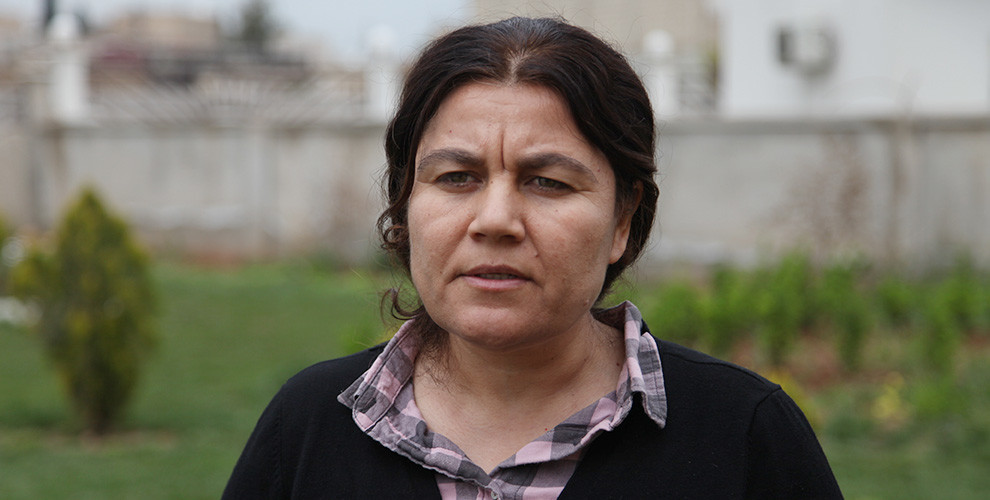With the liberation of the eastern territories of Deir ez-Zor by the Syrian Democratic Forces (SDF) and the end of the territorial rule of ISIS, the question of the "post-ISIS situation" has come into focus.
According to unofficial data, more than 11,000 formerly armed ISIS members are in prisons in northern and eastern Syria. Over 72,000 ISIS members from 54 different countries - mostly women and children – are being held in camps in the region.
Since none of the countries of origin of these persons, who came from other countries and committed war crimes in Syria and are now in prison, have responded positively to the return calls of the North-East Syria Administration, there is a discussion about bringing them to justice on the ground.
Foza Yusif, a member of the women's association Kongreya Star Coordination, spoke to ANF about the matter, and stated that it would be a major mistake to regard ISIS as a mere military problem. In her opinion, the fight must continue on many levels. The burden of ISIS could not be passed on to the peoples of northeastern Syria, she says and emphasizes that for these people to be brought before an international tribunal, international forces must be active, in particular the United Nations and the International Criminal Court.
The burden lies on the shoulders of northeastern Syrian people
"The ISIS is defeated militarily, but the problem is not exclusively a military problem. As has been the case so far, the fight against the ISIS must continue; not only militarily, but on many levels," explains Foza Yusif. "There is a lack of clarity about what should happen to ISIS members who have committed war crimes and their families. The entire burden lies, as it were, on the shoulders of the peoples of northeastern Syria."
The danger of possible security gaps
Foza Yusif notes: "We have already borne the brunt of the fight against ISIS, thousands of young people have sacrificed their lives for it. Even now, the entire burden lies on us. The military presence, that is, the territorial rule is over, but the ISIS still poses a great threat to security. There are still sleeper cells. On the other hand, these people are now in jail, but there is no official status. Our region faces threats from various directions, especially the Turkish state. Should there be a tiny security gap here, there would be a great danger for all of them. It would be like a hand grenade from which the security pin was pulled.”
The common struggle must continue
Foza Yusif refers to Camp Hol, which -she notes- is one of the largest camps in the Middle East. From an economic, security and logistical point of view, the supply of the camp would place a great burden on Northeast Syria.
"A solution has to be found for the imprisoned ISIS members. This requires cooperation. The United Nations, the International Criminal Court and international civil society organizations need to work together. This burden must to be shouldered by everyone ", claims Foza Yusif.
No comparable precedent
Since there are no precedents comparable to the ISIS, a new legal system is necessary, says Foza Yusif: "The situation requires a very special work to ward off the danger to the entire world. The United Nations and other international bodies must play a more active role. The ISIS is not only our problem, it concerns everyone. For example, a person who has committed crimes here may have been guilty in other places around the world. However, most of these crimes have been committed in this region, so they must be brought to justice here. And for that, an international court has to be set up.”
RELATED NEWS:













